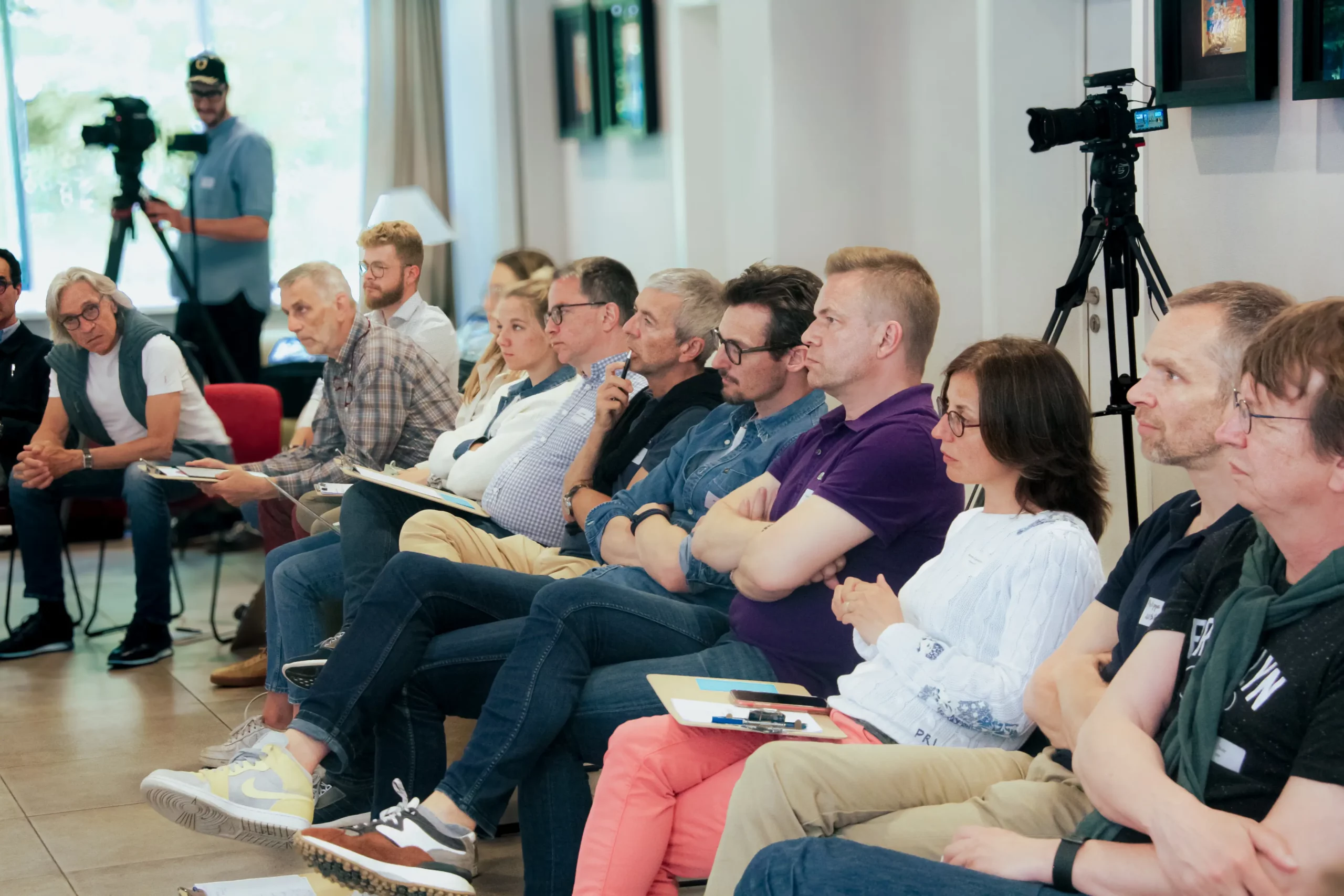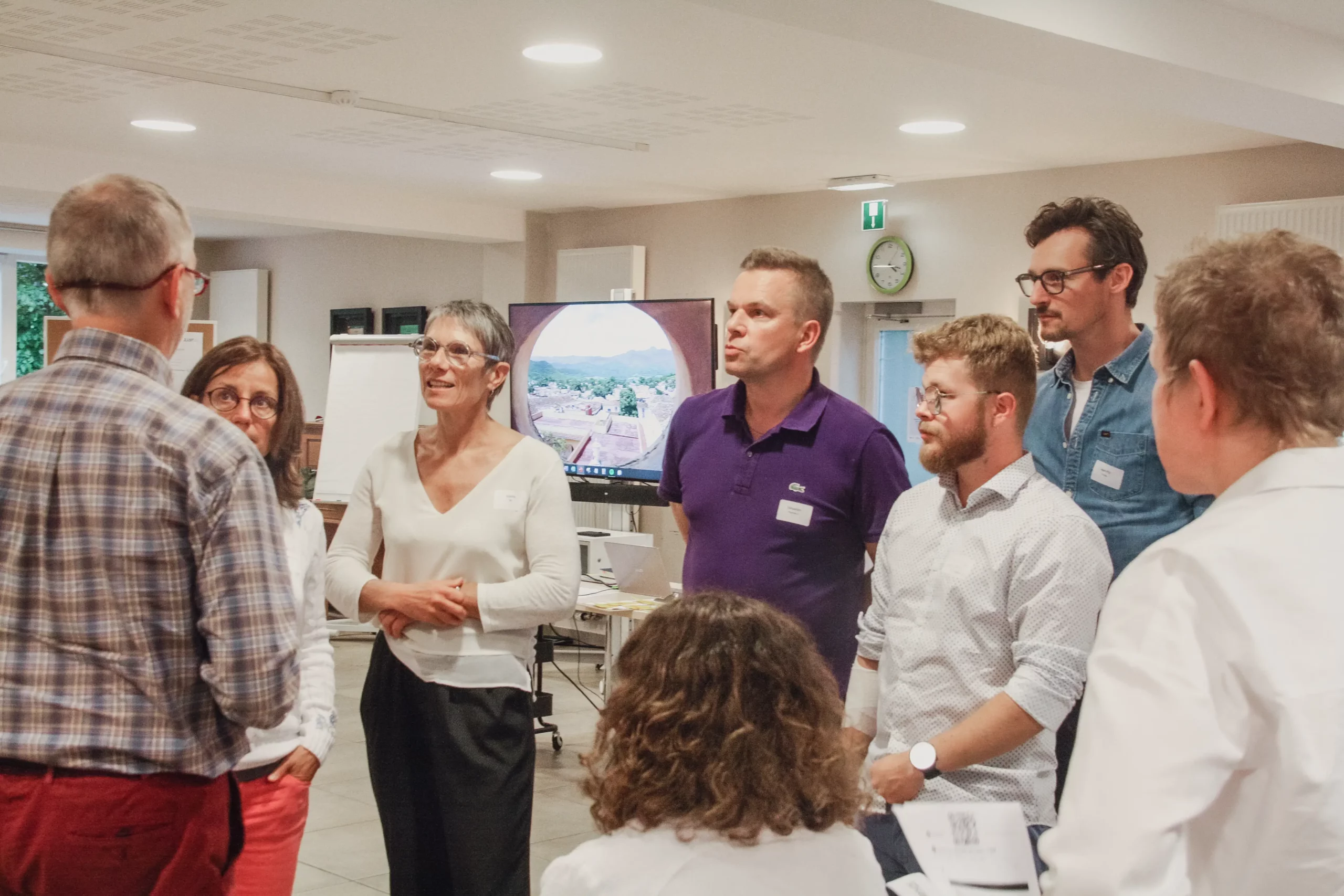
Planetary boundaries with Sarah Cornell
Sarah Cornell, the research coordinator of the Planetary Boundaries research group at the Stockholm Resilience Centre (SRC) and a co-convenor of the international Planetary Boundaries Research Network, led the session on planetary boundaries. Sarah Cornell’s session on planetary boundaries was eye-opening. She highlighted how the Holocene period provided stable climatic and ecological conditions that allowed human civilization to flourish. Unfortunately, we have pushed our planet to its limits, and we’re now facing unprecedented rates of ecosystem destruction. Here are some critical points from her talk:

Climate change and ocean acidification
Current state: Atmospheric CO2 levels are at 416 ppm, far beyond the safe boundary of 350 ppm. This overstepping threatens our climate stability and ocean health.
Urgent actions: We must stop burning fossil fuels, preserve carbon sinks like forests and soil, and address our consumption and waste habits to mitigate further damage.
Biosphere integrity
Interconnected ecosystems: The integrity of life on Earth is vital for maintaining dynamic cycles that support planetary functions. The loss of biodiversity directly impacts land and water systems, emphasizing the interconnectedness of all life forms.
Novel entities (chemical pollution)
Invisible threats: These geologically new substances pose severe risks without any safe exposure level. Policies must urgently address these pollutants to prevent further ecological harm.
Cornell emphasized that we need a systemic approach to these issues. Solutions cannot be isolated; they require coordinated actions among governments, businesses, and individuals.
Taking transformations seriously with Andy Stirling
Andy Stirling is Professor of Science and Technology Policy at the Science Policy Research Unit at the University of Sussex, where he co-directed the ‘STEPS Centre’ for sixteen years. Andy Stirling’s session was a call to rethink our definitions of progress and modernity. He challenged us to consider that our environmental and social problems are rooted in historical structures of ‘colonial modernity’, focused on control and risk management. This session was preceded by a practical exercise with Erinch Sahan on how to think systemically about business using doughnut economics.
Rethinking progress
Extractive nature: Stirling highlighted that our idea of progress, driven by industrialization and technological advancements, is fundamentally extractive and controlling. We need to embrace multiple pathways to sustainability rather than a single, linear trajectory. He invited us to go from “colonial control” to “convivial care”.

Credit: Andy Stirling
Doughnut economics with Erinch Sahan
Erinch is the business and enterprise lead at the Doughnut Economics Action Lab. Visual framework: Doughnut economics, theorized by Kate Raworth and introduced by her colleague Erinch Sahan at our residential, offers a compelling framework for creating a safe and just space for humanity. It emphasizes the need to transform our economic systems from degenerative to regenerative, ensuring fair distribution of resources.

Implications for business
Transforming business design: The residentials underscored that achieving a sustainable economy requires a radical transformation of business models. This involves shifting from profit-driven to purpose-driven operations, fostering collaborative networks, and adopting governance structures that prioritize sustainability over solely financial returns.
Aligning purpose with design: For businesses to truly unlock their transformative potential, their purpose must align with the core components of their design. This means reevaluating ownership structures, financial practices, and the mission statements that define their existence.
Conclusion
Our journey through these residentials has provided us with invaluable insights into systemic thinking and planetary boundaries. By integrating these principles into our business practices, we could be better equipped to tackle the complexities of today’s world and contribute to a sustainable future. As we continue to build on this foundation, we are committed to fostering a culture of active listening, humility, and curiosity, which are essential for driving meaningful change.
Abstract
This article explores the foundational learnings from 2030’s first two residential sessions, which focused on systemic thinking and planetary boundaries. In May 2022, Sarah Cornell discussed the critical planetary boundaries, emphasizing the need for systemic solutions to address climate change, biosphere integrity, and chemical pollution. In April 2023, Andy Stirling challenged conventional notions of progress, advocating for diverse pathways to sustainability to foster regenerative and redistributive business practices. This session was preceded by a practical exercise with Erinch Sahan on how to think systemically about business using doughnut economics. These insights highlight the necessity for businesses to transform their design and align their purpose with sustainable principles.
Highlights
Critical planetary boundaries: Sarah Cornell emphasized the urgent need to address climate change, biosphere integrity, and chemical pollution through systemic solutions that involve coordinated actions from governments, businesses, and individuals.
Rethinking progress: Andy Stirling urged a reevaluation of progress, highlighting the extractive nature of colonial modernity and advocating for multiple pathways to sustainability rather than a single, linear trajectory.
Doughnut economics for business: Erinch Sahan introduced doughnut economics as a framework for creating a safe and just space for humanity, stressing the importance of transforming business practices from degenerative to regenerative and ensuring fair resource distribution.

